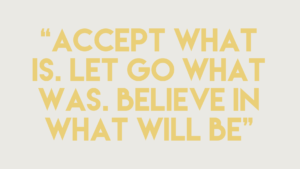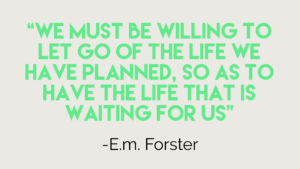What To Do After A Down Syndrome Diagnosis: Prenatal Or At Birth
![]()
![]()
![]()

![]() Being hit with a Down Syndrome diagnosis prenatally or at birth is equally as stressful. Prenatally you have a bit more time to prepare but it doesn’t make finding resources any easier. When I got a positive NIPT for Trisomy 21, I was never given any resources on Down Syndrome, until Rowen was diagnosed at birth. Even then they just throw a bunch of information at you and you’re left to fend for yourself. I never got a CVS/Amnio to confirm diagnosis, but I still did my research to prepare. It helped the news at birth not sting so much but it was still overwhelming. I spent the first 4 weeks of Rowen’s life buried in paperwork when I should have been focusing on just enjoying the newborn stage. I regret that. There are a lot of resources our kids qualify for but when we don’t have guidance during the process it can be easy to get overwhelmed. I created this list to help other parents not feel so bombarded trying to find resources and help explain the processes I went through. I hope it helps! I’ll link resources for Social Security for Children and Early Intervention so you can have some understanding on how the process works.
Being hit with a Down Syndrome diagnosis prenatally or at birth is equally as stressful. Prenatally you have a bit more time to prepare but it doesn’t make finding resources any easier. When I got a positive NIPT for Trisomy 21, I was never given any resources on Down Syndrome, until Rowen was diagnosed at birth. Even then they just throw a bunch of information at you and you’re left to fend for yourself. I never got a CVS/Amnio to confirm diagnosis, but I still did my research to prepare. It helped the news at birth not sting so much but it was still overwhelming. I spent the first 4 weeks of Rowen’s life buried in paperwork when I should have been focusing on just enjoying the newborn stage. I regret that. There are a lot of resources our kids qualify for but when we don’t have guidance during the process it can be easy to get overwhelmed. I created this list to help other parents not feel so bombarded trying to find resources and help explain the processes I went through. I hope it helps! I’ll link resources for Social Security for Children and Early Intervention so you can have some understanding on how the process works.
- Breathe- Initial news, whenever it is, can take the wind out of our sails. I learned that continuing to worry about the future only caused me more anxiety when I needed to deal with the present. Take things day by day. Don’t let the worry of “how are we going to do this?” take away the joy from your pregnancy or those first few precious weeks of your new baby’s life. It WILL be ok. I was an anxious mess at first and now here I am 8 months later finally getting the hang of it all. I’m still learning as I go.

- Balance- Focus on bonding with your baby while also getting the ball rolling to setup a medical & therapy team. It took me 6 months to figure out that “To Do” lists were my friend. Don’t force yourself to work on 3 hours of paperwork then 2 long phone calls all in one day. It’s mentally exhausting. I try to schedule my phone calls throughout the week or while I’m driving (safely) to appointments. I block 2 hours a day to do “administrative” work, if need be. Phone calls, paperwork, insurance calls, scheduling of appointments and whatever else needs to be done. All these things will eventually simmer down as time goes on based on what your child’s medical needs are.
- If you have a prenatal diagnosis- I highly recommend you research Children’s Specialties in your area. Find the health network that you feel would be a good fit for you and your child. Rowen has seen Cardiology, Ear Nose & Throat, Gastroenterology, Optometrist, Genetics, Pediatricians, Orthotist, Endocrinology and Sleep Clinic all under a year. I’m probably forgetting some. There are certain medical conditions that just come along with a child with Down Syndrome. Most are manageable and even we can have them with “normal” DNA. Cardiology is very important if your child has a heart defect that is detected before birth/at birth, but the heart surgery that is done solves the problem in most cases and only requires monitoring throughout life. I have a few friends whose DS kiddos had heart surgery. I tend to refer heart questions to them because it’s not something I have experience with. I know all of this sounds overwhelming & negative, but as someone who has been doing this for some time now, it’s become routine. I don’t stress anymore about many appointments or meds. We’ve created a bond with our care team and now it’s exciting to go to appointments to see our favorite doctors & nurses! They become family. I love when we go to an appointment at a big hospital and Rowen is remembered because his personality left an impact on the staff. It makes doctors visits not as dreadful.
- Early Intervention- is available by law in every state in the US. Every state’s qualifications are different, but most times Down Syndrome is an automatic qualifier for all services. It is almost always covered financially. In PA, Early Intervention follows the child up until the age of 3. They work with families in their homes to create treatment plans/goals for Physical Therapy, Occupational Therapy & Speech Therapy. DS kids often have low muscle tone. Every child is different but building the foundations from a young age helps them get strong physically and mentally. Fine tuning motor skills from the beginning is so important to lay a successful foundation later on in life for our kids. The first few years are the most crucial. https://www.cdc.gov/ncbddd/actearly/parents/states.html
- Stay home if you can- I know this is easier said than done, especially if you’re a woman leaving a career. I’m in the middle of finishing up my last two years of college and transitioned to all online. I’ve had trouble taking on a new identity of not only “mom” but “special needs mom.” I find that me staying home to do Rowen’s therapy and be in charge of his care has made a noticeable difference in his development. We’ve worked really hard with his therapists these last few months and he’s within milestone range of a typical 6-9 month old baby! Granted, it is exhausting taking on the role of so many people as one person. It’s okay to ask for help. We are now starting Physical Therapy and Occupational therapy because it’s become too much pressure on me to figure out exactly what Rowen needs. COVID has put a halt on a lot of in person services for Early Intervention and kids are suffering the consequences. I decided to call someone in who will give Rowen the attention he deserves and will give him the attention he deserves so I can focus on school work during the days. That is my job, so I can take care of us after I graduate. Therapies really do play such a huge role in their development. Every child is different. I plan to stay home until he’s able to enter a Pre-K program tailored to his needs or the public school system. At that point I will readdress my career goals and feel comfortable knowing we worked hard early to help Rowen succeed when he gets to this level.

- Know what help is available- Whether it be Government Assistance, Medicaid, Food Stamps or Social Security payments ETC, DO NOT be ashamed to utilize these resources. If you have to stay home due to medical issues with your child, UTILIZE THESE!! They are there for a reason. We work and pay into these systems. Down Syndrome qualifies for all help automatically in most cases. It is hard to keep a full time job when you have to take off 12x+ a year for doctors appointments. These services are income based, but if you have to stay home with your child as a single parent or your husband goes to work, your family only has one source of income. Even if you don’t think you’ll get approved, apply. If you get denied the first time, appeal. We are our children’s biggest advocates and we have to fight for what they deserve sometimes. It gets mentally exhausting, but once these things are in place it will take a lot of stress off you as parents long term. We all know the health care system in America is broken. With Medicaid I don’t have to stress about Rowen’s treatment financially. The links below explain a breakdown of income qualification for Social Security payments for children. https://www.ssa.gov/ssi/text-income-ussi.htm
- Social Media- I gave birth during COVID, so most in person resources and support groups were not available to me. I had no friends with babies with Down Syndrome, so I had to figure out a way to get the support I needed. I’m not a fan of Facebook groups because they can be catty. Yes, even the special needs groups. I came across #TheLuckyFew hashtag on Instagram while I was pregnant. It’s a universal hashtag in the Down Syndrome community and it’s how we find each other! I have made some of the best friends virtually who have kids Rowen’s age, moms who have more experience with older kids and moms who are going through the same procedures we are. I have found such a supportive and safe space within Instagram throughout this whole journey. Not to mention, these are strong like minded women who have the goal to educate and advocate like I do. If I hadn’t found this community, I wouldn’t be handling this as well as I do most days.
One of my goals is too push for more education and resources from Doctors when a diagnosis is given. From my experience, and many others that I’ve heard, parents are left to pickup the pieces and figure out the next steps when they are told their child has Down Syndrome. As if the stress of the diagnosis isn’t enough. I’m always willing to answer questions I have answers too, share my experiences or direct a question to someone that has the answer. As parents of these very special kids, we’re all in this together.